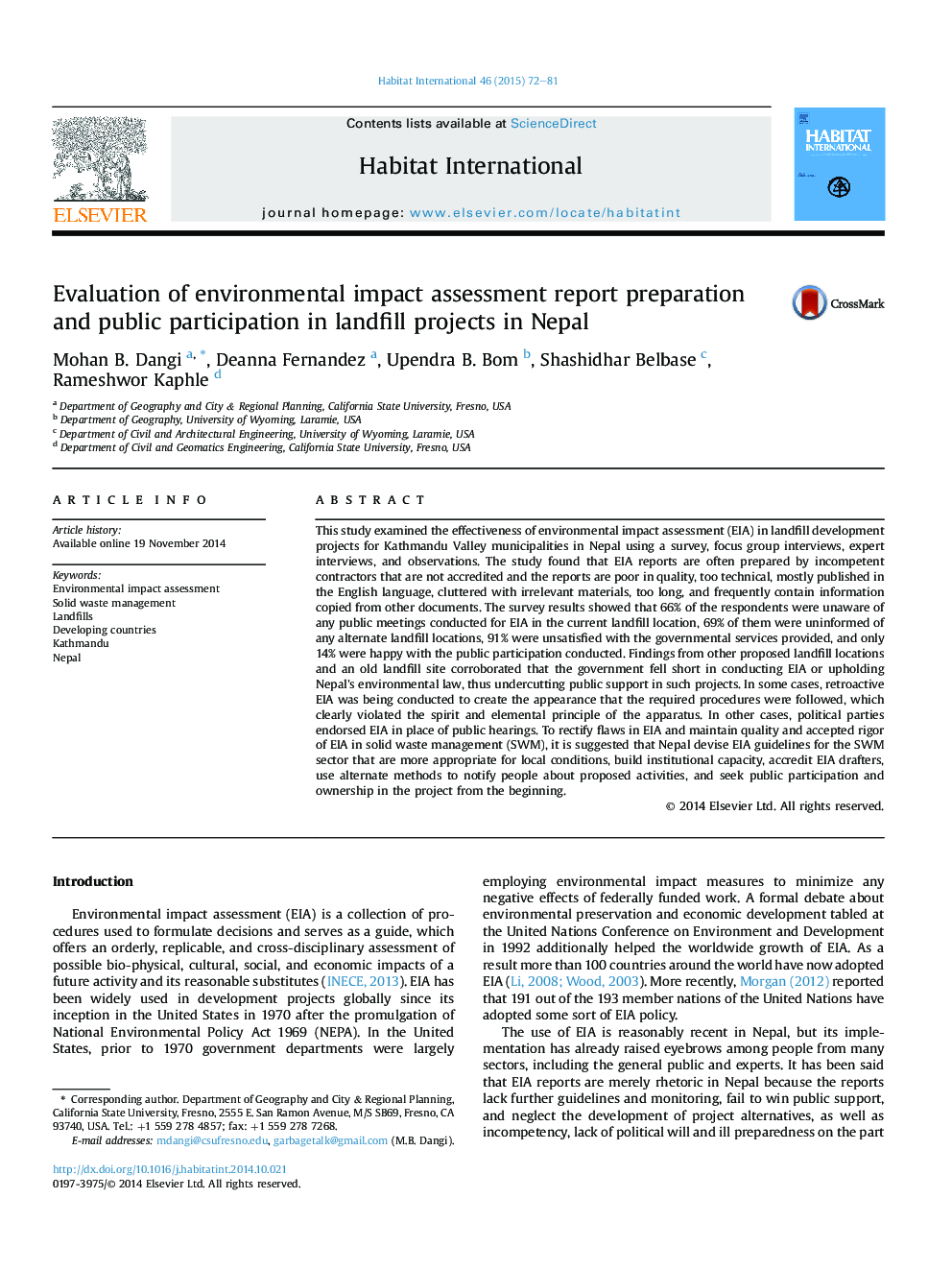| کد مقاله | کد نشریه | سال انتشار | مقاله انگلیسی | نسخه تمام متن |
|---|---|---|---|---|
| 1047923 | 1484497 | 2015 | 10 صفحه PDF | دانلود رایگان |
• EIA practices are not fully conceived in Nepal's SWM projects.
• 66% of people were unaware of any public meetings conducted in landfill projects.
• Only 14% of people surveyed were happy with public participation in EIAs.
• Proponents' meetings with political parties replace public hearings in Nepal.
• Nepal requires location specific EIA guidelines to select and design new landfills.
This study examined the effectiveness of environmental impact assessment (EIA) in landfill development projects for Kathmandu Valley municipalities in Nepal using a survey, focus group interviews, expert interviews, and observations. The study found that EIA reports are often prepared by incompetent contractors that are not accredited and the reports are poor in quality, too technical, mostly published in the English language, cluttered with irrelevant materials, too long, and frequently contain information copied from other documents. The survey results showed that 66% of the respondents were unaware of any public meetings conducted for EIA in the current landfill location, 69% of them were uninformed of any alternate landfill locations, 91% were unsatisfied with the governmental services provided, and only 14% were happy with the public participation conducted. Findings from other proposed landfill locations and an old landfill site corroborated that the government fell short in conducting EIA or upholding Nepal's environmental law, thus undercutting public support in such projects. In some cases, retroactive EIA was being conducted to create the appearance that the required procedures were followed, which clearly violated the spirit and elemental principle of the apparatus. In other cases, political parties endorsed EIA in place of public hearings. To rectify flaws in EIA and maintain quality and accepted rigor of EIA in solid waste management (SWM), it is suggested that Nepal devise EIA guidelines for the SWM sector that are more appropriate for local conditions, build institutional capacity, accredit EIA drafters, use alternate methods to notify people about proposed activities, and seek public participation and ownership in the project from the beginning.
Journal: Habitat International - Volume 46, April 2015, Pages 72–81
